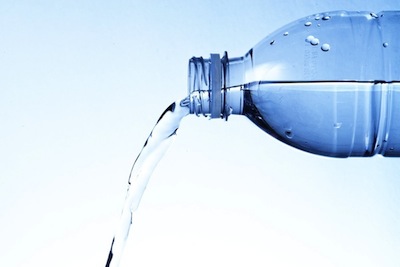Drinking Water May Provide Mental Boost

Drinking plain old water may help improve mental performance, at least on certain brain tests, a small study suggests.
In the study, participants who drank about three cups of water (24 ounces, or 775 milliliters) before taking a battery of cognitive tests performed better on a test that measured reaction times compared with those who did not drink water.
This finding was particular true for thirsty people. The researchers speculate that the sensation of thirst may take some attention away from the task at hand, and thus impair response time.
These results suggest that a "freeing up of attentional resources" occurs when people quench their thirst, the researchers wrote in the July 16 issue of the journal Frontiers in Human Neuroscience.
However, water consumption may not always improve cognition. In a separate test of rule-learning, participants actually fared better if they did not drink water before the test. Future research should try to explain why drinking water appears to have beneficial effects on some cases, but negative effects in others, the researchers said.
"It might be that physiological processes [of drinking or not drinking water] affect performance on different tasks in different ways," said study researcher Caroline Edmonds, of the University of East London School of Psychology in England.
"Thirst might lead to better performance on some tasks," because the hormone vasopressin, which activates the thirst response, has also been linked to attention and arousal, Edmonds told LiveScience.
Sign up for the Live Science daily newsletter now
Get the world’s most fascinating discoveries delivered straight to your inbox.
Earlier studies in adults have suggested that dehydration can decrease mental performance, and studies in children have suggested water consumption can improve memory.
In the new study, 34 adults were asked to abstain from food or drink starting at 9 p.m., and come into a laboratory the next day for testing. Participants visited the laboratory twice: On one occasion, they were offered a cereal bar for breakfast along with water, and on another day, they were offered a cereal bar and no water.
For the reaction test, participants had to press a button as soon as they saw an object on a computer screen. Reaction times were 14 percent faster among the water group than the no water group.
Water consumption did not significantly affect performance on other tests of cognition, such as memory of words.
It's important to note that it is possible to overdose on water — known as water intoxication — which occurs when water dilutes sodium in the blood.
Follow Rachael Rettner @RachaelRettner. Follow LiveScience @livescience, Facebook & Google+. Original article on LiveScience.com.

Rachael is a Live Science contributor, and was a former channel editor and senior writer for Live Science between 2010 and 2022. She has a master's degree in journalism from New York University's Science, Health and Environmental Reporting Program. She also holds a B.S. in molecular biology and an M.S. in biology from the University of California, San Diego. Her work has appeared in Scienceline, The Washington Post and Scientific American.









